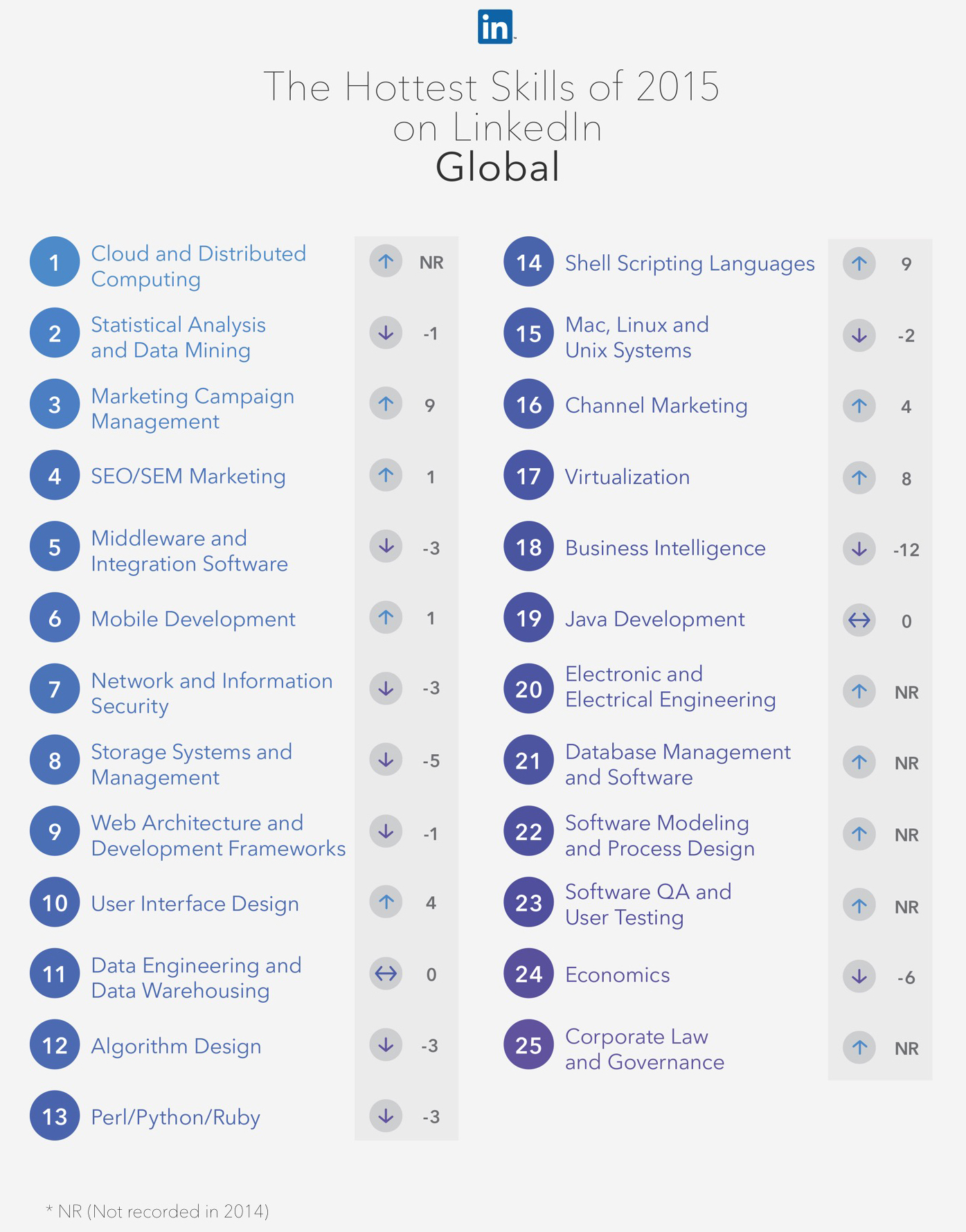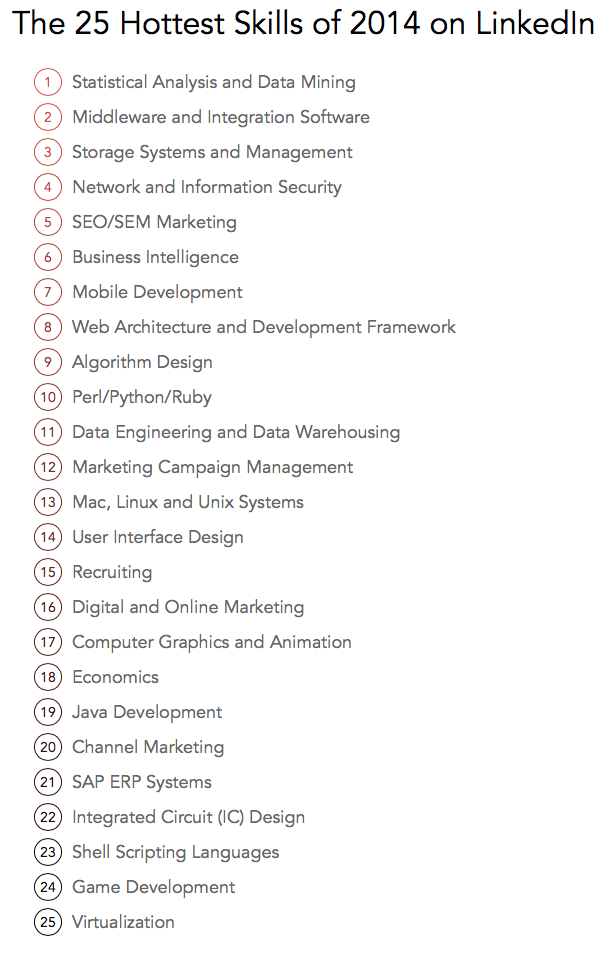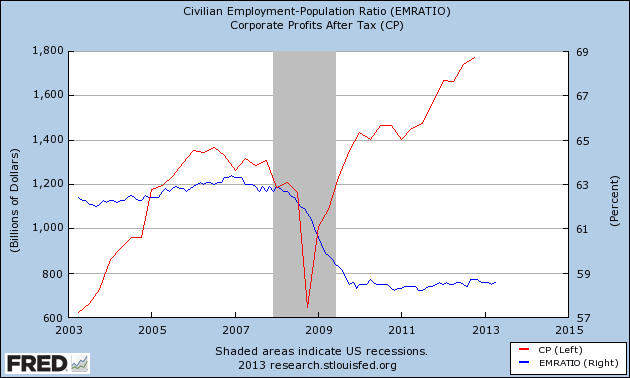Your annual reminder that LinkedIn is not where most people live and work
Recently, LinkedIn released its list of The 25 Skills That Can Get You Hired in 2016, their assessment based on recruiter, jobseeker, and LinkedIn member activity and profile updates of the 'hottest' skills that their data suggest will be the ones that offer workers the best chance of getting hired or promoted in 2016. Here is the list of these 'hottest' skills as per our pals at LinkedIn:

Pretty impressive set of skills indeed. From Data Mining to Cloud Computing to Mobile Development and User Experience Design - the list hits just about all of the current and certainly 'hot' trends in technology and business in the last few years. And as LinkedIn rightly state in their analysis of this data, these skills are likely to remain in demand for some time, at least a few years for sure.
But as I wrote on this blog about 12 months ago when LinkedIn published their list of 'hot' skills for 2015, it is pretty easy to be beguiled by these kinds of lists, particularly when juxtaposing the LinkedIn set of hot skills with the Bureau of Labor Statistics data about what kinds of jobs people actually do, (at least in the USA).
From our pals at the BLS, here is a chart from May 2014, (the latest period when this data is available), which shows occupations with the largest employment in the USA. Take a look at the data, then a few quick FREE comments from me after the chart.
Did you catch some differences between what gets people hired, at least people who are on LinkedIn, and the kinds of jobs that are held by the largest numbers of people in the USA? These Top 10 occupations make up about 21% of overall US employment, in case you were wondering, down only 1% from last year in case you were wondering.
Wonder how far down on the BLS list (and you can check the full list of occupations as defined by the BLS here), you have to go before you run in to 'Cloud and Distributed Computing' and 'Statistical Analysis and Data Mining', the top 'hot' skills for 2016 as per LinkedIn?
I will save you a click and let you know that all the occupations that the BLS rolls up into 'Computer and Mathematical Operations', (where most of LinkedIn's Top Hot skills would likely map), account for about 3.8M workers, that is just under 3% of all the jobs in the country, just about the same as it was last year. Sure, it is trendy to think that the LinkedIn skills represent the future of work, and perhaps they probably do, but they don't really represent the 'present' of work, not in a substantial way anyway.
LinkedIn is a fantastic business, a staggering success, and not at all like the real world where the overwhelming majority of workers reside.
Have a fantastic day. And don't spend so much time on LinkedIn.

 Steve
Steve



